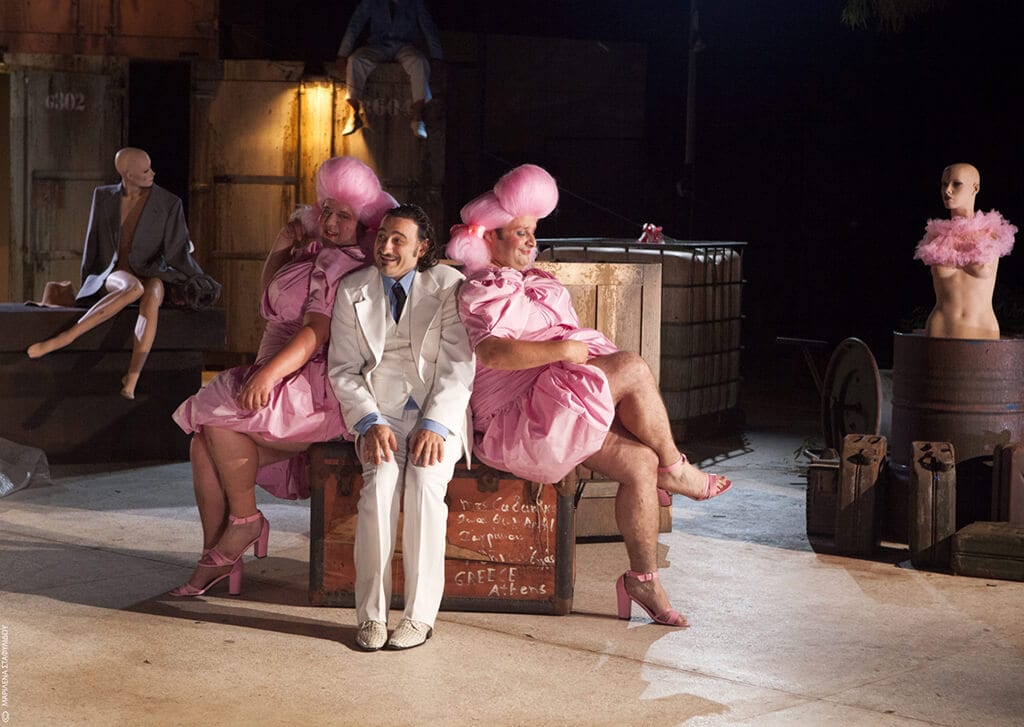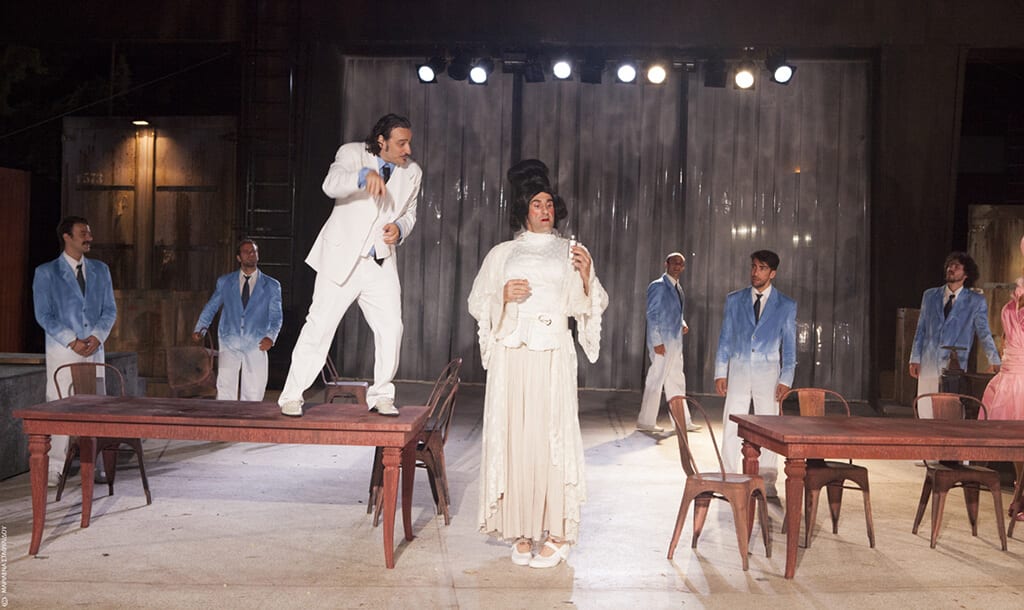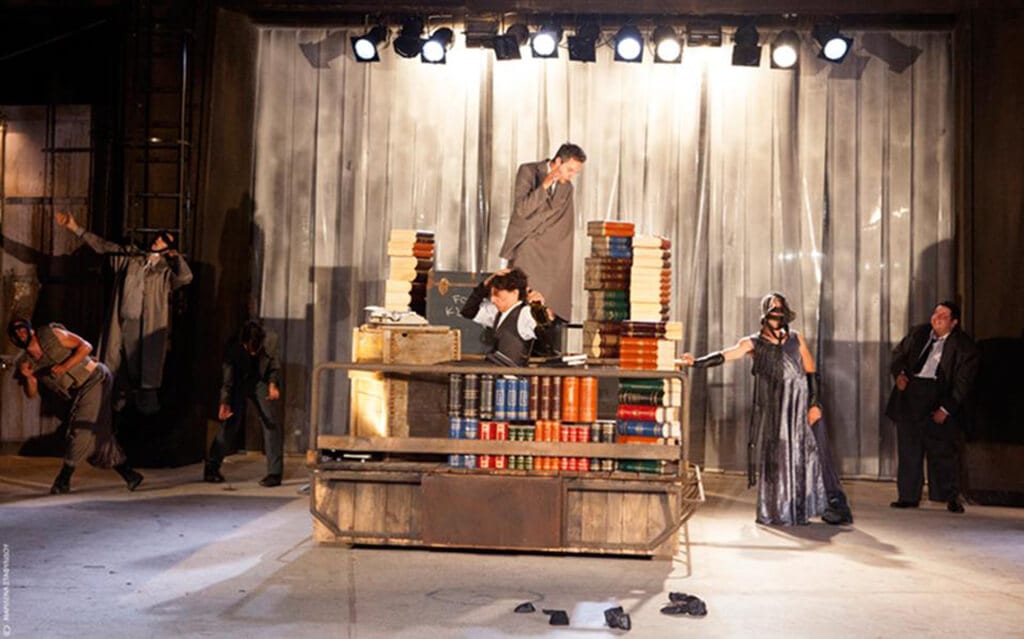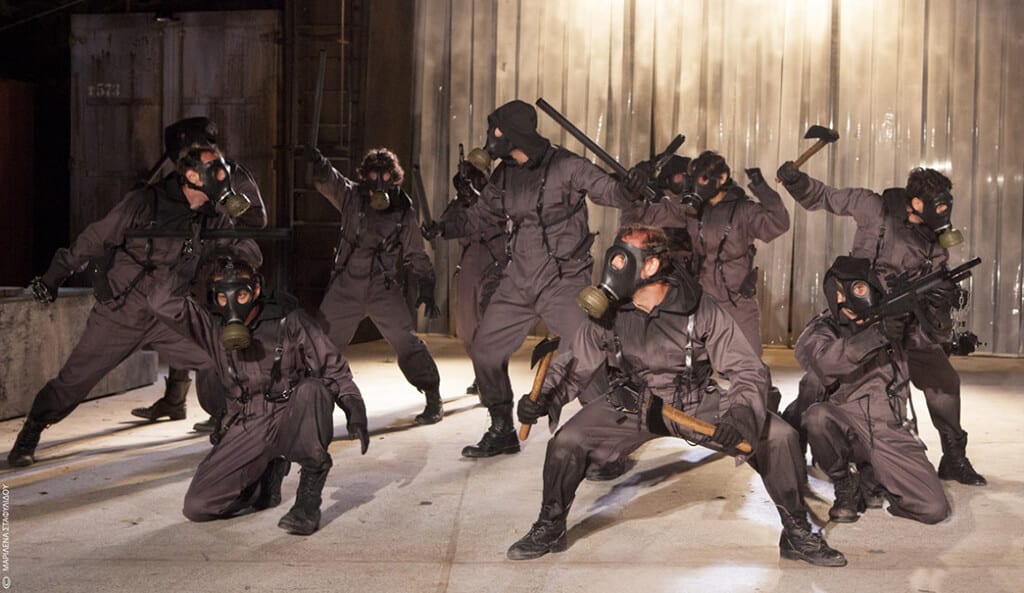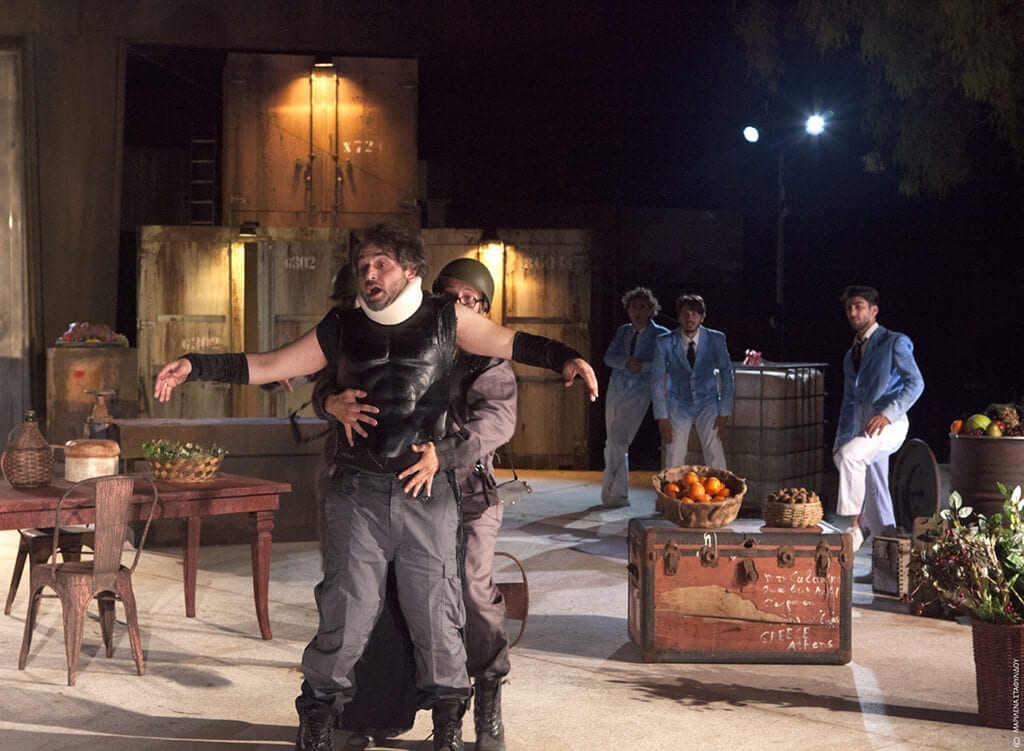Acharnians (Attic: Ἀχαρνῆς) is the third play of Aristophanes and his oldest surviving one. It was produced in 425 BC and was awarded first place at the Lenaia Festival. Aristophanes directed the play and acted in it, taking the part of the protagonist. It stands out for its inventive storyline, its comic use of Euripidean tragic elements and for its metatheatrical element. Α witty and strong satire against militarism and war, an impassioned defence of peace, a scathing critique of political corruption and the demagogues that corrupt, misdirect and misinform the citizens and a spirited spoofing of Euripides.
The Peloponnesian war was in its sixth year, with the Spartans and their allies invading Attica every year, burning, looting and vandalizing, trying to draw the Athenians to land battle, in which they would be militarily inferior. The Athenians on their part always remained behind city walls until the enemy returned home, whereupon they would march out to wreak revenge on their pro-Spartan neighbours – Megara in particular; a debilitating war that led to daily privations, starvation and plague.
In the play a farmer and war refugee, Dicaeopolis, frustrated and weary of war decides to plead the case for peace to his fellow citizens. His plight falls on deaf ears and disgusted as he is with the venality, ineffectiveness and war-mongering of politicians and the irresponsibility of the Athenian citizens, he takes matters into his own hands. He tasks Amphitheus – a self-proclaimed demi-god – to broker a private peace between the Spartans and himself. Amphitheus succeeds and Dicaeopolis is allowed to return in Acharnes. Unfortunately, the rest of the Acharnians – still war-torn – attack him and he has to borrow the character of Telephos from the tragedian Euripides, in order to be allowed to argue for the benefits of peace and to save his skin. His case is made even more difficult by the interventions of General Lamachus, a war-hungry, narcissistic braggadocio. In the end Dicaepolis reaps the wealth of peace, in his own private market, trading with friends and foes alike and Lamachus slumps wounded and dejected supported by his soldiers.
After his acclaimed production of Frogs last year, Kakleas’ Acharnians is a timely choice that resonates with Greek current affairs. His incorporation of the poem “If you want to be called human” by Tasos Livaditis – a call to political activism as a moral imperative – as part of the lines of the chorus is a well-placed and a relevant modernisation in the text. Kakleas and his team also chose, when adapting the text, to avoid name-dropping, obvious puns and excessive profanity. Thankfully, no name of German or Greek politician marred the text, nor glittery celebrities, nor any TV references were made, unlike past adaptations of Aristophanes, where the brilliance of the text was stifled by simplistic jokes, a clumsy incorporation of the news cycle and heavy reliance on bawdiness. My only complaints the irrelevant overt gayness of the ambassadors – it was a well-received joke by the audience, but was an unfortunate choice that offered nothing to the production and was bordering on sexist, in my book – and the slightly abrupt end that cut short Dicaeopolis’ bacchanalian banquet that gave the production a bit of a lacklustre end.
The purpose-made floats and the spacious freight containers allowed the numerous members of the cast to move with ease on and off stage and gave the whole production an air of military compound. Eva Nathena’s costumes defined each role creatively and were a colourful and vivid background to the acting; the cardboard-box-barcode-headed politicians, malleable, corruptible and identical; the opulent ambassadors from Persia; the dark overalls of the chorus, a nod to those of the Greek Riot Police; Euripides suit, part bespoke three-piece, part operatic cape combined with garters, divided and multi-faceted like the dramatist’s characters; the bubble-gum pink retro dresses of the piglet-girls; the bright green suit of the sycophant – a personal favourite when he was summarily bubble-wrapped, packaged and sold!
All the actors inhabited their roles with energy, passion and ease. Servetalis’ Euripides with his multiple-tragic characters-disorder was memorable, despite the awkward, high-pitched initial introduction. Sokratis Patsikas and Thanos Birkos were juicy and sassy as piglet-girls. Both Charalampopoulos and Mouratidis did justice to their contrasting peace-loving and war-loving characters both keeping their usual mannerisms in check. The rapt attention and uninhibited laughter of the audience in the picturesque Erofili theatre, made the production a hallmark for the summer’s rennaisance festival. A summer must-see, vibrant, witty and funny.

